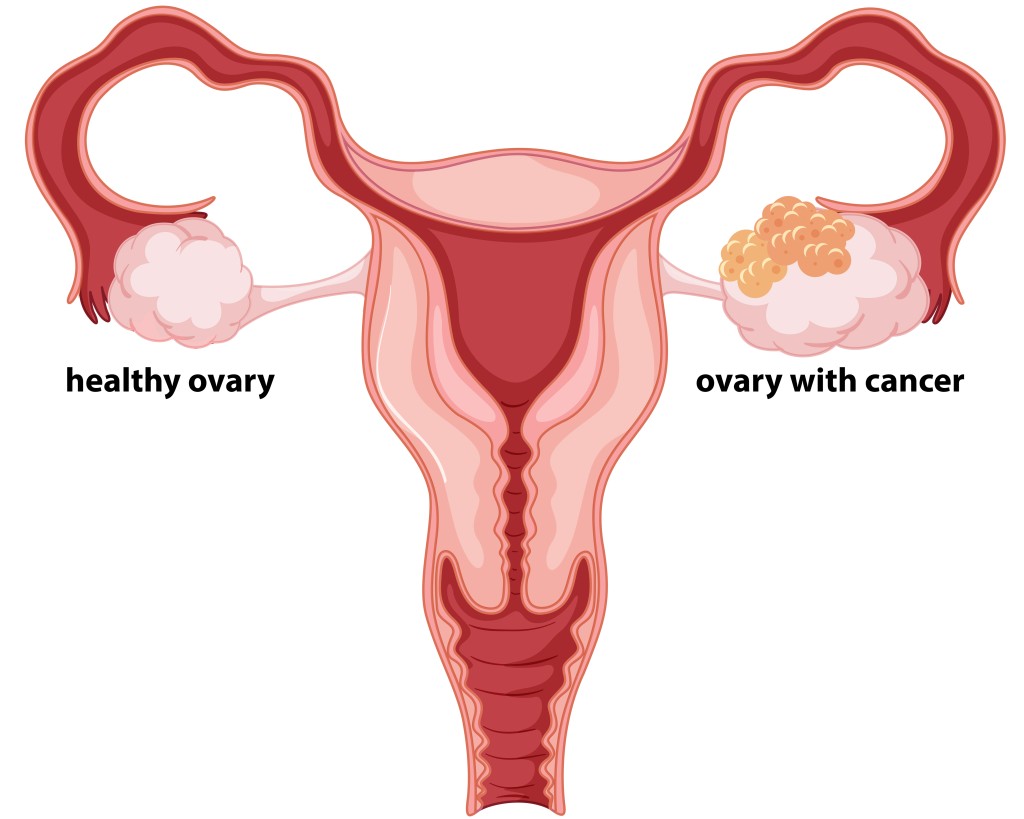Ovarian Cancer

Ovarian cancer is a type of cancer that begins in the ovaries, the female reproductive organs responsible for producing eggs and hormones. It often goes undetected until it has spread within the pelvis and abdomen, making it more difficult to treat. Symptoms of ovarian cancer can be vague and nonspecific, such as abdominal bloating, pelvic pain, difficulty eating, and frequent urination.
At our clinic, we understand the challenges of ovarian cancer and offer specialized services to diagnose and manage this condition effectively. Our approach begins with a thorough evaluation of symptoms and medical history, followed by diagnostic tests such as pelvic exams, imaging studies (e.g., ultrasound, CT scan), and blood tests to detect tumor markers.
Once diagnosed, our team works closely with each patient to develop a personalized treatment plan tailored to her specific needs and stage of cancer. Treatment for ovarian cancer typically involves surgery to remove the tumor and surrounding tissue, followed by chemotherapy to target any remaining cancer cells. In some cases, targeted therapy or immunotherapy may also be recommended.
In addition to medical treatments, we provide comprehensive support services to help women cope with the physical and emotional challenges of ovarian cancer. This may include counseling, nutritional support, pain management, and access to clinical trials for new and innovative treatments.
We also emphasize the importance of early detection and prevention strategies for ovarian cancer. While there is no reliable screening test for ovarian cancer in the general population, women with a family history of ovarian cancer or certain genetic mutations may benefit from genetic counseling and testing to assess their risk.
Our goal is to provide compassionate and comprehensive care for women affected by ovarian cancer, helping them navigate their treatment journey with dignity, resilience, and hope. With our specialized services, women can receive the support and treatment they need to improve their quality of life and achieve the best possible outcomes.